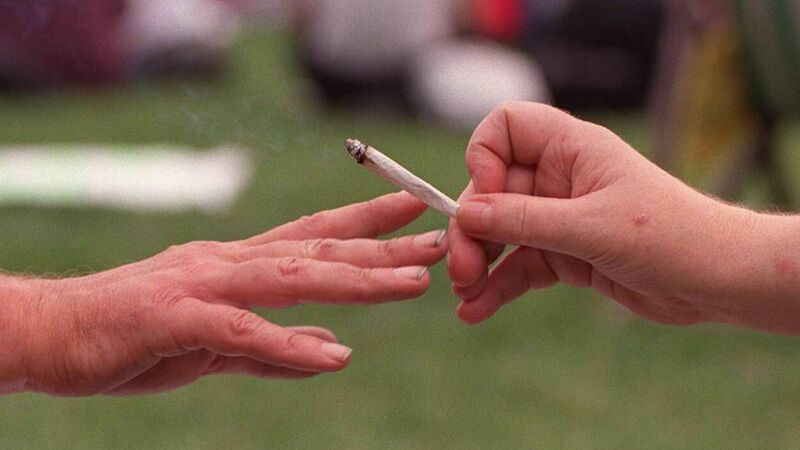Ireland has a drug problem, and legalisation is not a panacea

The European Drug Report 2024 shows Ireland had 322 drug-induced deaths in 2020 - 97 deaths per million people, compared to the EU average of 22.5. Estonia is in second place (95) followed by Norway (86).
Death rates in many European countries are a fraction of what is happening in Ireland: including Germany (30), the Netherlands (26), Belgium (21) and Portugal (11).
These spiralling drug deaths are happening at a time when Ireland is considering a move away from criminalisation for people found in possession of drugs for personal use- to a comprehensive health-led response. However, this approach is not without its critics and other countries where this approach applies are reconsidering a policy that tolerates open drug use amid a mounting death toll.
The report by the European Monitoring Centre for Drugs and Addiction (EMCDDA) warns of aggravating factors that will compound the figures. These include: a scarcity of heroin expected later this year likely to be filled with synthetic opioids such as nitazine; record seizures of cocaine in the EU in recent years; and growing concerns at the increasing strength of cannabis resin, the high potency of cannabis extracts and edibles, and the dangers posed by synthetic cannabinoids.
The recent report of the Citizens’ Assembly on Drugs Use recommended that the State pivots from the status qua to a comprehensive health-led response to drugs, including decriminalisation for people found in possession of drugs for personal use. Assembly Chair Paul Reid said the Assembly was given the important job of considering what the State could do to significantly reduce the harm caused by illicit drug use.
“We have produced an Irish model set in an Irish context that represents a generational chance to improve the lives of many individuals, families and communities impacted by our current approach to drug use,” he said. “We owe it to them and society in general to embrace this opportunity.”
Government Chief Whip, Minister Hildegarde Naughton responded to the publication of the final report in January, stating that “the recommendations will be considered carefully and with urgency and will undoubtedly lead to meaningful changes and improvements in how the State responds to these issues”.
However, one country that introduced a trial of decriminalisation for drugs for personal use has rowed back on the tolerance of drug use in personal spaces.
Premier David Edby asked the government to reintroduce a ban on public drug use, though personal possession and consumption will still be allowed in private places.
“Keeping people safe is our highest priority,” said Edby. “While we are caring and compassionate for those struggling with addiction, we do not accept street disorder that makes communities feel unsafe.”
Similar to what is being recommended in Ireland, the province began its experiment of decriminalising but not legalising the possession for small amounts of illicit drugs, a move heralded as a constructive step towards a health-led solution rather than punishment of people who use drugs and suffer from addiction. The plan was initially to be trialled for three years and closely monitored at federal and provincial levels.
Canada’s health minister said it would serve as a template for other jurisdictions and ‘make a difference’ in the spiralling overdose crisis that had engulfed British Columbia.
“Addiction is a health issue, it is not a criminal law issue, and that principle is what the entire decriminalisation project was about,” said Premier Edby. “It was about removing the stigma for people struggling with addiction, preventing them from potentially reaching out to others for help… for fear of arrest, for fear of a criminal record.”
Mike Farnworth, provincial minister of public safety and solicitor general, supported Edby’s approach: “People are dying from deadly street drugs and we see the issues with public use and disorder on our streets,” he said. “As we continue to go after the gangs and organised criminals who are making and trafficking toxic drugs, we’re taking action now to make it illegal to use drugs in public spaces, and to expand access to treatment to help people who need it most.”
Portugal is another country hailed as a model for progressive jurisdictions across the globe since the introduction of decriminalisation of all drugs for personal use in 2001.
In July last year, police in Porto were reported to be blaming a spike in the number of people who use drugs for a rise in crime in the city, while state-used paraphernalia - syringe caps, packets of citric acid for diluting heroin - littered pavements outside primary schools. Policy patrols increased but existing laws limited the ability to intervene.
In our bid to confront the huge problem of drugs deaths in Ireland, is this what we want to see on our streets and public spaces, or is a more qualified approach to decriminalisation that limits legal drug use to private spaces, a better option?
Many cities and county councils limit the consumption of alcohol in public places in Ireland - shouldn’t similar rules apply to the open consumption of drugs?
Ireland is the European leader in terms of its spiralling problem of drug deaths. A decriminalised model that relies on a criminal justice response must be urgently replaced by a comprehensive health-led response that is overseen by a dedicated and accountable Cabinet Committee on Drugs, chaired by the Taoiseach.
However, recent evidence from trials in other countries suggest that this may need to be qualified by maintaining a legal ban on the use of drugs in public spaces
Harm reduction measures, and treatment and recovery services need to be comprehensively funded and resourced, both in prisons and communities, as well as a much greater focus on prevention and recovery and greater supports for families and children impacted by drug use.
This latest report highlights the immense urgency to deal with the crisis of drug deaths in Ireland. There is no time to lose.
Dr Catherine Conlon is a public health doctor in Cork and former director of human health and nutrition, safefood.







 App?
App?




